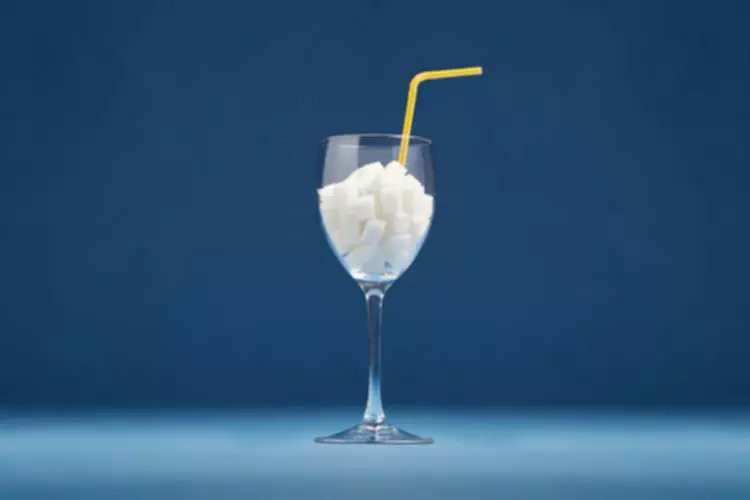- April 28, 2025
- Posted by: admin
- Category: Sober living

They will be able to provide tailored advice on how best to replenish lost nutrients after heavy drinking sessions. It is important to replenish the vitamins and minerals that alcohol depletes from your body. Alcoholic beverages can deplete the body of essential vitamins and minerals, such as vitamin A, B-complex, C, D, E, and K. Additionally, alcohol can interfere with the body’s absorption of certain minerals like calcium and magnesium. Supplementing with B-complex vitamins may also help alleviate withdrawal symptoms such as anxiety or irritability by supporting neurotransmitter function in the brain.
- Over time, you’ll discover that genuine connections, laughter, and relaxation are far more vibrant and authentic without the chemical haze of alcohol.
- Doctors may recommend multivitamin supplements containing B1, B2, B3, B6, and vitamin C.
- Incorporating omega-3s into your recovery plan may enhance cognitive function while alleviating symptoms of depression or anxiety commonly experienced during withdrawal phases.
- You might think alcohol helps you sleep, but it’s more like being “walloped with a pharmaceutical mallet” than getting restorative rest.
Vitamins to take for alcohol withdrawal
- Although research is ongoing, there’s some evidence that milk thistle can help reduce the symptoms of cirrhosis and chronic hepatitis.
- You can findthiamine naturally in foods like breads, nuts, meat, yeast, beans and cerealgrains.
- Magnesium is often overlooked but plays an essential role during alcohol withdrawal.
- During alcohol withdrawal, B vitamins, especially thiamine, are highly recommended.
- This isn’t a pipe dream; it’s the lived reality of countless individuals who have successfully broken free from alcohol’s grip.
Taking regular vitamin supplements helps support optimal health by providing necessary daily intake of minerals and vitamins needed for energy metabolism and improved function throughout the body’s systems. Doing so also helps individuals with higher levels of stress maintain balance during times where dietary choices might be limited or less nutritious than usual. The best supplements for alcohol recovery include B vitamins, magnesium, zinc, and omega-3 fatty acids. These nutrients help replenish deficiencies caused by alcohol abuse and support overall health. They can aid in reducing cravings and improving mood during the recovery process. Nutrition plays a vital role in the recovery process for individuals overcoming alcohol dependence.

Understanding Dihydrocodeine Addiction

Nutrition is a cornerstone in the journey of recovery from alcohol addiction, as it provides the body with essential tools to repair the damage caused by alcohol misuse. A balanced diet supports physical healing, improves mental health, and is an integral part of a successful recovery process. Alcohol abuse often leads to malnutrition and specific nutrient deficiencies, particularly of best vitamins for recovering alcoholics B vitamins and vitamin A, which are crucial for maintaining healthy bodily functions. In the journey towards recovery from alcoholism, replenishing your body’s nutrients is crucial. Vitamin B complex, which includes essential vitamins such as thiamine (B1), riboflavin (B2), niacin (B3), and others, plays a vital role in supporting liver function, brain health, and energy production. A lack of B vitamins can lead to fatigue, memory problems, and reduced alertness, so ensuring your body gets enough B vitamins is important during alcohol withdrawal and recovery.

What are the signs and symptoms of addiction?
Amino acids, the building blocks of protein, are crucial for maintaining and repairing the body’s tissues, including muscles, bones, and organs. In alcoholics, consistent alcohol consumption can impair protein synthesis, negatively affecting the body’s ability to regenerate and repair damaged cells. Therefore, it is essential for individuals in recovery to consume adequate amounts of drug addiction treatment protein through foods such as lean meats, poultry, fish, legumes, and dairy products.
Treatment Can Be Life Changing. Reach out today.

Vitamin C helps your liver to metabolize alcohol more effectively, reducing its toxic effects on the body. It also helps your body to produce glutathione, which is a powerful antioxidant that helps protect cells from oxidative damage caused by alcohol consumption. Vitamin C can be found in fruits and vegetables such as citrus fruits, tomatoes, and broccoli. The best way to replenish these nutrients is to take a multivitamin that contains all the essential vitamins and minerals. If you don’t want to take a multivitamin, you can also supplement with individual vitamins or minerals like vitamin C, B-complex, magnesium or calcium. Taking a probiotic may also help restore healthy gut bacteria that is depleted by alcohol consumption.
Latest stories in Innovative care

Taking supplements like vitamin C, NAC, and GABA may help replenish your nutrient stores, potentially reducing your cravings and easing your withdrawal symptoms. In summary, vitamins and nutrients are essential during opioid detox to support overall health and well-being. Opioids damage antioxidant systems, which protect cells against free radicals that may play a role in heart disease, cancer, and other diseases. Antioxidant use can improve disturbance in the body caused by opioids and help the person in recovery reach homeostasis. High-intensity antioxidant foods include dark chocolate, pecans, blueberries, strawberries, artichokes, goji berries, raspberries, and kale.
- Vitamin B supplementation is particularly crucial in combating the deficiencies commonly observed in alcoholism.
- The journey to lasting sobriety, supported by the right nutritional allies, is not just about stopping drinking; it’s about starting a new life – one filled with clarity, energy, and authentic connections.
- This isn’t to say that thiamine doesn’t help – it’s justadmitting that no one really knows exactly how much is optimal.
- Vitamin D isn’t just vital for bone health; it also plays a significant role in mood regulation.
- Taking a liver cleansing supplement containing milk thistle or dandelion root is also beneficial for helping filter out impurities that have built up due to bingeing.
- For those in recovery, incorporating a variety of lean proteins into the diet is advisable.
Why is Vitamin Supplementation Essential for Drinkers?
And researchers have concluded that magnesium supplementation can decrease nicotine addiction in heavy smokers. Every tissue in your body has vitamin D receptors, including the brain, heart, muscles, and immune system. It has neuroprotective and cognitive-enhancing effects, and as I’ve discussed before, it can support your mitochondria, protect your brain from alcohol, and help you overcome brain fog. Researchers have also studied the relapse rates of cocaine addicts discharged after a period of detoxification.
- Taking supplements can help alcoholics in experiencing withdrawal symptoms or undergoing detoxification.
- Using vitamins to help detox from opiates can help rebuild people’s immune systems and encourage a more efficient release of toxins.
What Is an Isocaloric Diet?
So, without further ado, let’s get into nutrients and supplements that helped me the most. One animal study showed that ashwagandha helps control mood changes, anxiety and seizures from alcohol withdrawal, but this effect has not yet been studied in humans. L-glutamine can help during alcohol withdrawal by improving symptoms like nausea, vomiting and diarrhea that can occur during the detox process.


